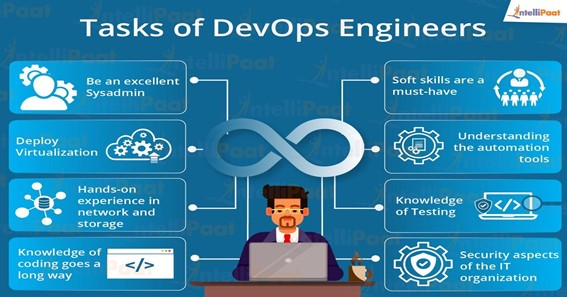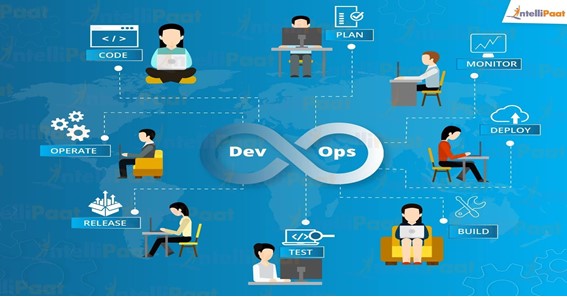DevOps is a software strategy that narrows the gap between the IT staff and the developers. Companies can release their features quickly using DevOps and also enjoy the following benefits;
- Reduced lead time between fixes
- Reduced software shortage.
The DevOps process entails a lot of testing, development, and deployment strategies to create automated CI pipelines. DevOps engineers are IT generalists with vast knowledge of operations and developments. These experts should have interpersonal skills that create a collaborative environment since they work across company silos.
DevOps engineering is among the most demanding job profiles in IT organizations today, and the future seems bright. Research has shown an increase in the demand for these jobs by around 40% over the last three years, and the numbers are set to increase.
However, this field is challenging and requires a broad skill set and experience, explaining why these experts have the IT world in their hands. Below we discuss tips to switch careers to become a DevOps engineer.

- Get Programming Knowledge
One of the crucial and essential skills you need to become a DevOps engineer is basic knowledge of different programming languages. Whether debugging codes or automating deployment processes, these engineers must be conversant with scripting or programming languages.
Programming languages are essential for effective continuous delivery. Please consider languages like Ruby, Perl, or Python to be a professional DevOps engineer. Interested individuals should consider applying for a DevOps scholarship to make their dream a reality.
- Understand OS and Linus Concepts
Familiarity with the Linux operating system and OS concepts is integral when building a career as a DevOps expert. Linux is the most recommended because most companies use it in their day-to-day applications.
However, you are not needed to be a pro in Linux but should have general information regarding different OS concepts like memory management, threads, and concurrency.
- Understand Different Version Control Systems
DevOps engineers must have GitHub and Git knowledge as a basic entry to the field. Version control systems enable DevOps engineers to have their repository’s backup. It also enables engineers to access the source’s last version and previous commits when needed. They also help manage the software’s team source code by following the tract modifications.
The version control system also handles human mistakes, and many versions are available.
- Deployment and Software Configuration Knowledge
DevOps engineers must know how to configure applications or software. Remember, these engineers are responsible for ensuring everything runs smoothly, meaning they should be familiar with the deployment process.
These experts are tasked with automating the necessary tasks like the deployment process to improve consistency, accurate deliveries, and reliability. These professionals should also have basic containerization and cluster management software knowledge for better deployment functioning.
They can use the following tools to deploy applications in the production environment.

- Be Familiar with Infrastructure as Code
Infrastructure as Code is a process that lets DevOps ease the deployment process as they generate the needed environment by the requirements. This feature also enables DevOps to run their IT infrastructure with the configuration files.
Ops today specify their stack and deploy multiple times. It also makes deployment easy and can happen quickly after every commit. It will help to pursue a DevOps career to learn coding and other skills.
- Security and Networking
DevOps engineers are tasked with handling different connections, servers, and data. This makes it necessary to have general knowledge regarding networking concepts. Interested individuals can opt for several online courses and training programs to handle the workflow.
DevOps must be concerned about the entire environment’s security in all stages. They should introduce different security policies to the company and automate all security processes.
- Understand CD/CI Projects
Understanding CI/CD processes are among a DevOps engineer’s most essential requirements. These processes are regarded as a section of the delivery pipeline process.CI deals with a developer’s code integration to a common repository’s main branch.
CI enables these experts to reduce unwanted costs and promotes efficient working. On the other hand, the CD makes the process of codes automatic. Understanding CD is crucial since it makes release easier and faster.
- Cloud Services and Providers
Most companies use Cloud services, which makes it essential for DevOps professionals to know about cloud services and providers. These engineers should understand this technology and its benefits to their companies. They should also act as mediators with different IT departments. Not only will having soft skills enable you to handle the DevOps process, but it will also put you in a better place career-wise.
Final Thoughts
The DevOps field is one of the most in-demand careers today, and it is hard not to see why. This career is complex, and one needs extensive knowledge to be among the most sought after. The above article has discussed how to become a DevOps engineer, including understanding OS concepts and programming knowledge.
Please feel free to reach out to us for more information.







